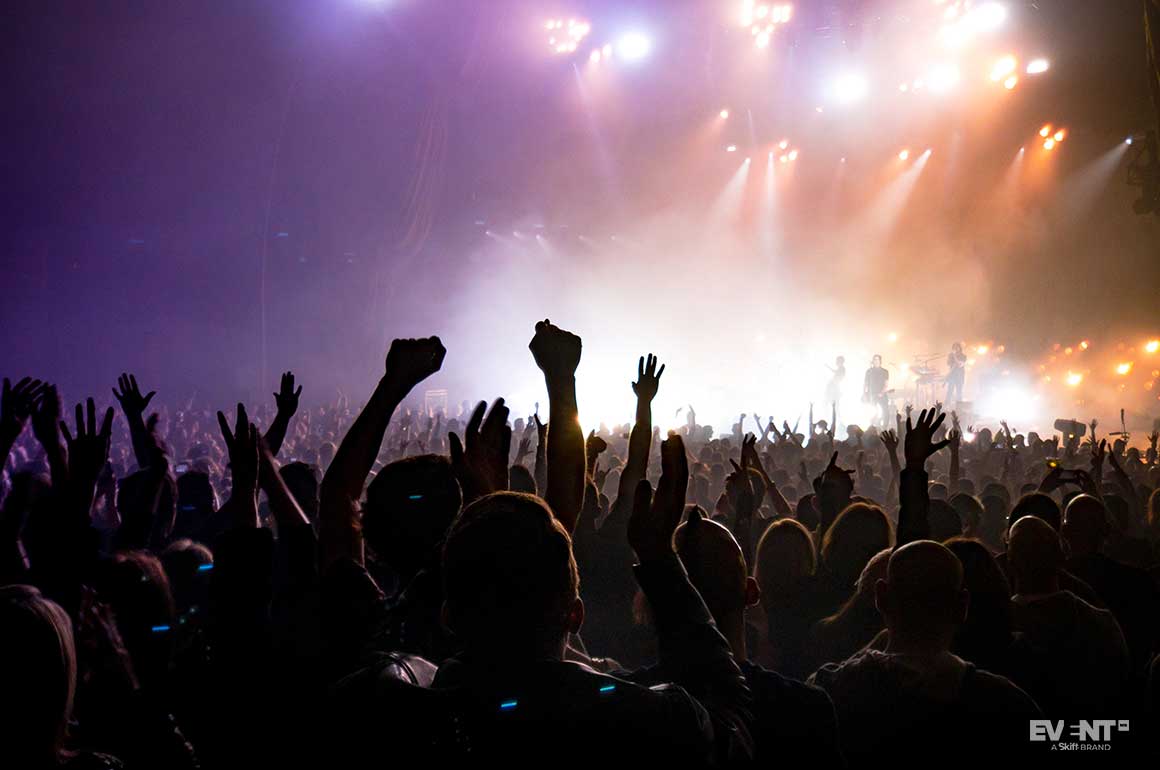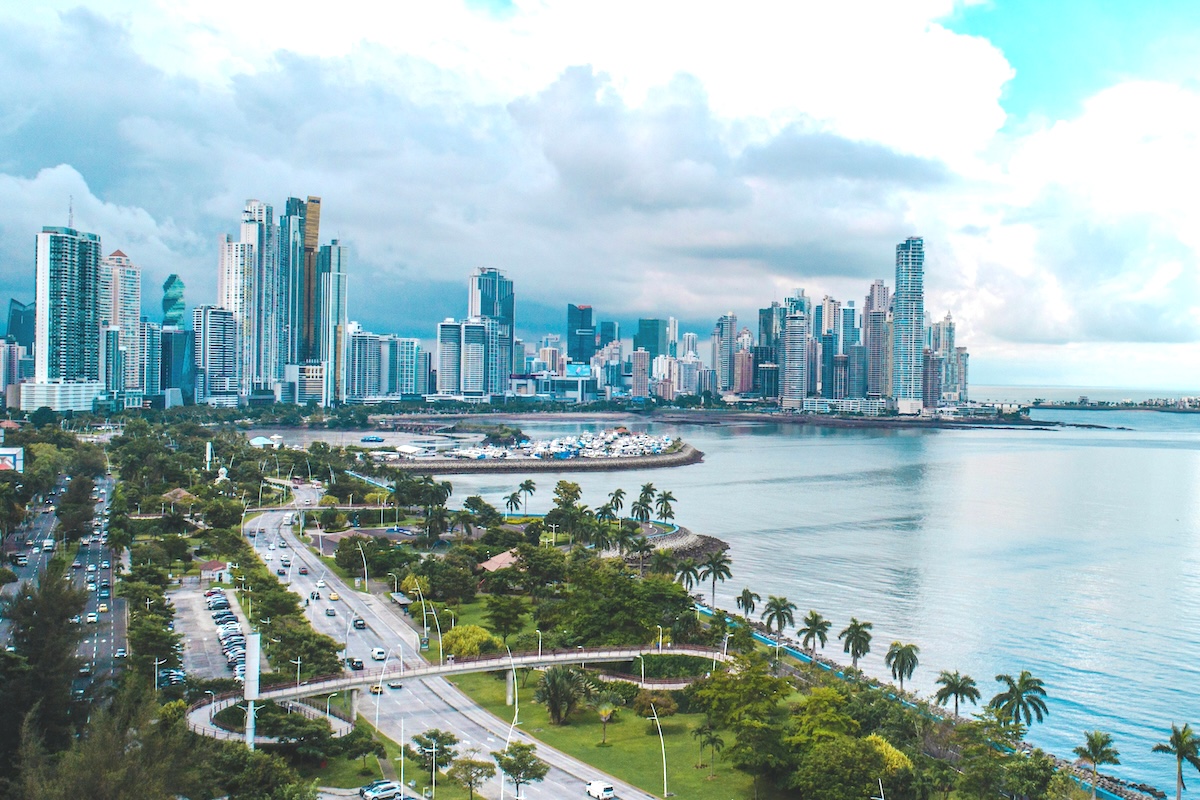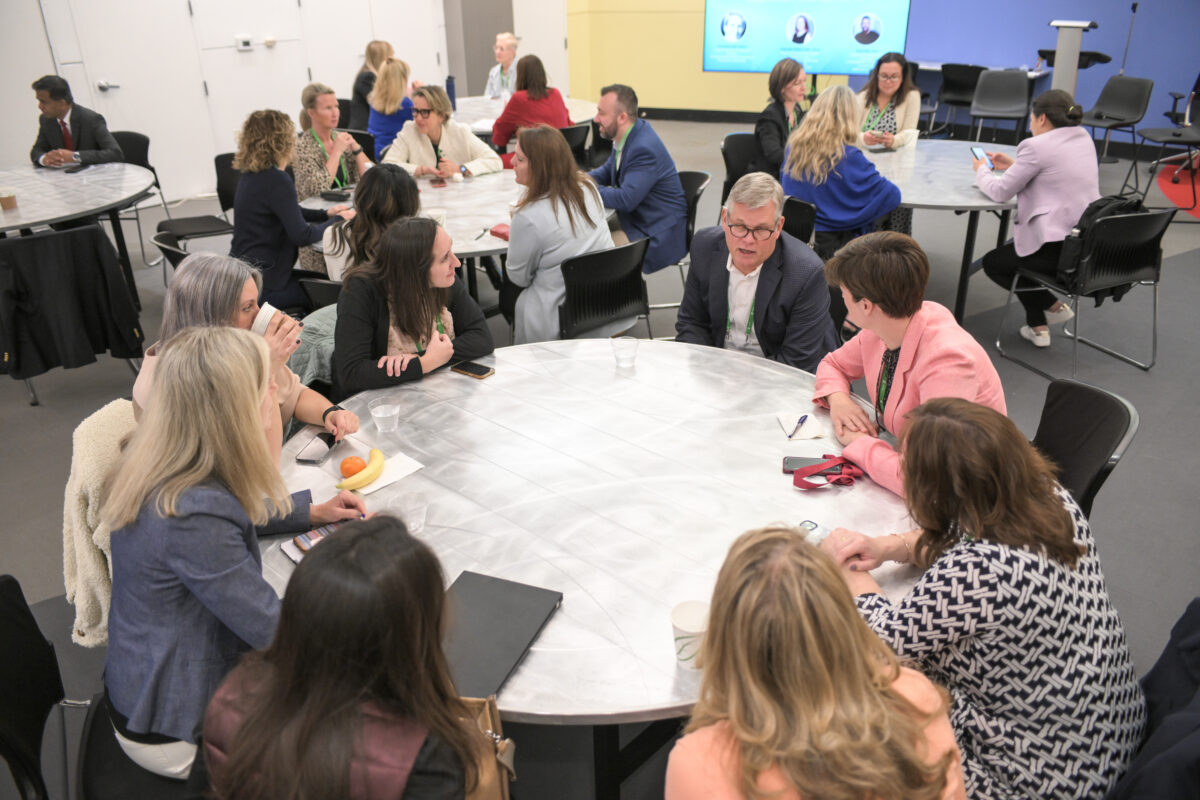Skift Take
Building on the success of an experimental December event, Barcelona has upped the ante for same-day testing by hosting a concert for 5,000 Covid-screened attendees. Will this prove to be a workable model for B2B events?
Much like the smaller-scale concert that was held in December of 2020, Barcelona’s more recent Love of Lesbian concert was designed to test the safety of hosting live events with tight safety controls in place. Despite strict local regulations that limit indoor gatherings to a maximum of four people, health authorities granted the organizers special permission to host a concert for 5,000 music fans.
And by all appearances, the participants of this mass experiment complied with rules around wearing the FFP2 masks supplied by event organizers. Moreover, everyone followed through with instructions to undergo rapid antigen testing at designated venues the morning of the event.
At the very least, this experiment is encouraging in terms of attendee cooperation with safety rules considering that compliance is one of the biggest holes in the argument for Covid-safe events. But the real question this event sought to answer is whether same-day testing will have allowed the event to escape the dreaded ‘super-spreader’ status once enough time has passed to measure any potential fallout.
What kind of follow-up testing are the organizers planning, and what might the results mean for B2B events?
A Rapid-Testing Experiment for Large-Scale Events
The more recent concert differs from the one held in December in a few important ways. Beyond the obvious expansion in scale, there are two other key changes in the experiment’s design:
- While the first event included a control group that did not attend the concert, this time organizers will simply compare the infection rates among concertgoers against those in the general public.
- Everyone who attended the first event was tested eight days after the initial gathering, but the more recent concertgoers will not receive follow-up testing by default.
Instead, concertgoers gave their consent for public health authorities to inform the organizers if any of them become sick with Covid in the coming weeks. Of course, this methodology virtually ensures that some asymptomatic cases will be missed, and others who develop mild symptoms may not seek medical attention (especially knowing that their results will be shared). Either way, it may be at least a couple of weeks before there is clarity on just how effective the event’s safety measures were.
Realistically, the experiment was designed to be more likely to be reassuring than not, at least in the short term. But if there is anything that the pandemic has taught us, it’s that a false sense of reassurance will eventually catch up with us. It would not bode well for the industry if several weeks from now, contact tracing suggests that multiple concert goers were responsible for a cluster of other cases, and one has to wonder if this motivation factored into the decision not to conduct the same rigorous post-event testing as the previous test event.
On the other hand, if no evidence of significant onward transmission emerges a month later, it could be a major win for the industry. 5,000 attendees represent a sizable sample group. At that scale, you need more than good luck on your side.
The Relevance for B2B Events
Under the best-case scenario, this experiment could help to revive public confidence in the safety of large-scale B2B events, provided that similar safety measures are used.
If rowdy concertgoers can follow mask-wearing rules and consent to testing, one would hope that business professionals could be expected to do the same. Very early on in the pandemic, German lobbyists successfully convinced regulators to exempt trade shows from the nation’s ban on mass gatherings. The thinking was partly that trade show attendees are much less likely to disregard social distancing rules than other event attendees, like concertgoers for example. While this turned out not to be true of some industry events, the opening of the Feria de Madrid this March brings with it the first Spanish trade show since the pandemic began, so it will shortly become clear whether this logic holds true within the trade show model.
The Barcelona concert — assuming it does not trigger an outbreak — would suggest that even if social distancing rules alone are temporarily suspended, attendees who tested negative within a few hours of the event may still be at relatively low risk of transmission. Although some have noted that the stadium was only filled to just over 20 percent of its capacity, the crowd itself was standing shoulder-to-shoulder for an extended period. By comparison, a 20-minute meeting on a spacious trade show floor seems low risk. The trick, then, would be to ensure that everyone is tested and the highest quality masks are worn consistently. This may prove more difficult outside of an event that was specifically designed to be a proof-of-concept for Covid safety, but there are ways to improve the odds.
And the city of Barcelona is thinking about business events just as much as it is about cultural ones. Its Back to Events initiative makes the case that rapid antigen testing will pave the way for the event industry’s safe recovery. Their “Action Plan” even contains modelling that details the risk of onward transmission based on the likelihood of false negatives at a hypothetical event. The same stakeholders behind this campaign also recently organized their own event with proof-of-concept rapid testing at the door.
If all goes as planned and Spain manages to keep the threat of a fourth wave under control, the crowning achievement may be MWC 2021. Organizers will require testing of attendees and event staff every 72 hours. Not only would this event mark the first major international trade show to take place in Europe since the pandemic began, but it would also feel like coming full circle. MWC 2020 was, after all, the first major event to be cancelled, a harbinger of what was to come.
IN CONCLUSION
For now, it is worth reminding ourselves that the Barcelona concert is an experiment that has yet to be concluded. It may be tempting to look at images of the densely-packed crowds and feel reassured that live events are back, but the potential repercussions have yet to be determined. Because concertgoers will not automatically receive follow-up testing, it may be weeks before the data comes in and it may not paint a complete picture when it does.
With that said, if it turns out to be smooth sailing, the Barcelona concert could help to chart the path towards recovery.





